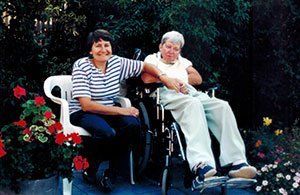Talking about Guilt and Regret
I am drawn at this time to talk about the topic that no caregiver really wants to think about – their feelings of guilt and regret. They surface the more often that we hear people praising us for what we do; when people say they couldn’t do what we do. I remember during my years of care giving, I could not just say thank you and accept that the other person didn’t understand. I felt I had to make them understand, that they were wrong, that I was not the paragon of virtue they somehow saw.
I talk about the subject in my video Aspect of Hope. I talk about the behaviors and rituals that I embarked on while Sue was still alive, so that I would not have guilt and regrets after my role was complete. I didn’t know if my rituals had any impact on the future, they just felt worthwhile at the time.
When my care giving days were over I was filled with regrets, and guilt. I vowed I would do better next time if there was a next time. There was. A close friend needed palliative care and wanted to die at home. I organized a volunteer roster and did all that I felt was expected of me for those 5 weeks. But maybe I had done less. Oh dear, there I was again, filled with guilt and regrets after she died.
So what is this all about? Yes it is about the grief process. It is very much about no second chances to get it right, no being able to redo something. When it is over, it is over. In essence it is about expectations. As caregivers we believe we are not expecting too much of ourselves. However misguided we know , deep inside, that everyone is expecting more. As a caregiver I went to bed trying to convince myself that I had done the best I could. The trouble was I was fooling myself. I did not believe that. My other voice was there criticizing me.
Was there someone to whom I could have turned? Could I have shared those feelings with a sounding board so I could have really convinced myself that I was doing the best I could? The reality is that at any given moment we only have the strength, skills, emotional power, decision making ability – that that moment will provide. A week later we may have more skills, have had more sleep, feel more confident and at that time be in a position to do a better job. At that time. That is the secret. We can not compare different days, situations, processes and outcomes. Each is unique.
There is another reality. Sometimes we do not do our best. It is not a case that our best was too little. It is that we purposely gave too little. Then we must live with the consequences. Why would we give less than we were able? Anger, hurt, frustration, lack of being appreciated, distraction or divided loyalties could well get in the way of us giving our all to the care giving role.
Success in being a caregiver comes from understanding our vulnerability, accepting it, loving ourselves because of it and most importantly, not hiding it. Only then can we move forward, living through our mistakes, acknowledging our flaws and understanding that perfection is impossible. Having a trusted person to share that journey with is invaluable. But they can not convince us that we are doing our best or support us when we are not giving our all. We alone can give ourselves permission to feel accomplished. We alone must ask for help when the task is temporarily beyond us.
Success in being a caregiver comes from understanding the progress we are making. Care giving is not about outcomes, it is about beautiful process or the meaningful journey. So often in my work life with the elderly the outcome was either placement in an institution or death. My skills were used to create a beautiful process or a meaningful journey. The outcome that was statistically measurable was not important to me.
What we must do is learn from the past so we hone our skills. But there is no graduation. We only graduate when we believe we have.
The years role by. My ensuing life experience makes me know that if I am in the caregiver role again, my expectations of myself will be higher. Me being me, I will still have regrets when it is over. But the guilt is a self inflicted punishment I can live without. I have learned to let that go. Perhaps for me, the words of a Jacques Revaux, Claude Francois, Gilles Thibaut and Paul Anka song made famous by Frank Sinatra say it best.
Regrets, I’ve had a few
But then again, too few to mention
I did what I had to do
And saw it through without exemption
I planned each charted course
Each careful step along the byway
And more, much more than this
I did it my way
From Frank Sinatra – My Way Lyrics | MetroLyrics







